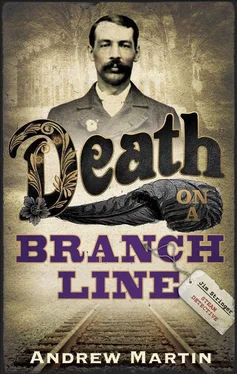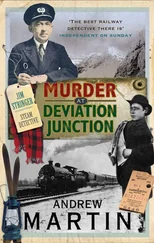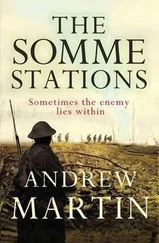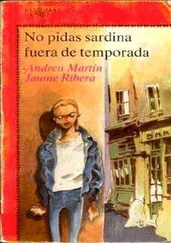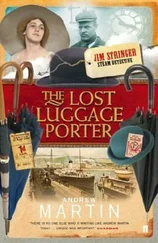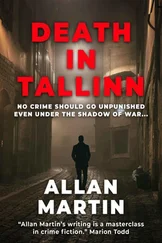Andrew Martin - Death on a Branch line
Здесь есть возможность читать онлайн «Andrew Martin - Death on a Branch line» весь текст электронной книги совершенно бесплатно (целиком полную версию без сокращений). В некоторых случаях можно слушать аудио, скачать через торрент в формате fb2 и присутствует краткое содержание. Жанр: Классический детектив, на английском языке. Описание произведения, (предисловие) а так же отзывы посетителей доступны на портале библиотеки ЛибКат.
- Название:Death on a Branch line
- Автор:
- Жанр:
- Год:неизвестен
- ISBN:нет данных
- Рейтинг книги:5 / 5. Голосов: 1
-
Избранное:Добавить в избранное
- Отзывы:
-
Ваша оценка:
- 100
- 1
- 2
- 3
- 4
- 5
Death on a Branch line: краткое содержание, описание и аннотация
Предлагаем к чтению аннотацию, описание, краткое содержание или предисловие (зависит от того, что написал сам автор книги «Death on a Branch line»). Если вы не нашли необходимую информацию о книге — напишите в комментариях, мы постараемся отыскать её.
Death on a Branch line — читать онлайн бесплатно полную книгу (весь текст) целиком
Ниже представлен текст книги, разбитый по страницам. Система сохранения места последней прочитанной страницы, позволяет с удобством читать онлайн бесплатно книгу «Death on a Branch line», без необходимости каждый раз заново искать на чём Вы остановились. Поставьте закладку, и сможете в любой момент перейти на страницу, на которой закончили чтение.
Интервал:
Закладка:
I read that ‘The Reverend Martin Ridley, vicar of Adenwold, spoke as to the frequent disagreements between father and son’ while John Lambert — eldest son of Sir George — had spoken for the defence about his brother’s gentle disposition and kindly nature. These pieces of evidence, however, were not detailed in the report. John Lambert had been in London on business at the time of the killing.
A doctor of Wandsworth Prison had given medical evidence that the prisoner was of sound mind — and the end of the article came as though the newspaper had suddenly realised it was running short of space. There was the heading ‘VERDICT’ in bold black type, and below it, ‘The jury’s verdict was guilty and the prisoner was sentenced to death.’
I looked up from the Post as the reading room clock tolled six with a horrible clanging. It was not enough to wake the elderly sleeper, though, and when the clock reverted to ticking it did so (it seemed to me) with a kind of weary sulkiness.
As I returned to the different heat of the railway station, a ‘down’ service trailed away north-east from Platform Eleven — half a dozen old six-wheeled rattlers. That would be the Scarborough excursion, taking Old Man Wright and his missus away. The train at the next platform was exceptionally short: just one carriage hooked up to a Class S. The train was a special. I walked towards it, and Hugh Lambert, the condemned man, was sitting in a corner seat of the carriage. I’d thought him long gone.
He looked like a man in shock, which it seems to me that people in train compartments very frequently do, especially the ones sitting in the corner seats. The three Met men were in there, too.
I moved to a position alongside the compartment, and one of the Met men stood up and turned his back to me, as if to block my view. Lambert kept his white face side-on. I did not believe that he had seen me. From somewhere a whistle blew, a shout went up and the S Class, barking furiously, dragged away this vision of death-in-waiting.
The special was out from under the station roof, and was approaching the ‘down’ signal gantry, when the irregular thing occurred. What I at first thought of as a short white stick was poked out through one of the windows. It then fell and divided: white sheets of paper floating in the hot hair — some swooping under the moving carriage and into the path of its bogies, others carrying on a little way pressed against the carriage sides, others again descending directly to the sooty ballast between the tracks. I knew immediately what had happened. Lambert had risen to his feet, and posted his papers through the compartment window.
I dashed along to the end of Platform Ten, and down the slope into the black gravel. As I ran along the tracks, I could feel the weight of the gazes from the station upon me. Some loony, driven crackers by the heat, was trying to run to the sea-side! In the forbidden area under the great signal gantry, I began to collect up the papers. Some creaking of the mechanism above me told me to beware; I looked up and a signal fell with a great thud, so that I first thought it was going to drop all the way onto my head. I looked into the station, and a filthy goods engine was coming through it, pulling an eternity of empty, lime-washed cattle trucks. This again was irregular. The train ought to have been using the servants’ entrance so to speak, going around the outside of the station on its way north. At any rate, it was soon alongside me, and the endless shuddering wagons gave the spilt papers another mix-up, and a few more of them were carried away. I caught up another twenty or so papers from off, or in-between, the tracks. I had seen prison-issue paper, and this was not it, which made me think that Lambert must have written these notes before being arrested, and that he’d then been allowed to keep them. I tried to make out a bit of the writing, but it wasn’t easy. ‘It is the printer that I feel sorry for — the compositor,’ I read, and then again: ‘It comes down, like most things, to mathematics.’
Standing on the tracks, oblivious to on-coming trains, I shuffled the papers and read: ‘He says that the work is Euclidian, and this he means as a commendation of it!’
I had taken too long to puzzle out that word ‘Euclidian’. I looked at my silver watch: six fifteen. The wife would be waiting on the footbridge, with her bag packed for Scarborough.
Chapter Eight
I slept right through to Malton, with the wife reading on the seat over-opposite. After our change at Malton — which did smell of malt, as though the dizzying heat brought out the true character of the place — we were over-whelmed by fields. At Amotherby station, two wood pigeons cooed somewhere out of sight. At Barton, a man and a bicycle boarded.
In-between were vast golden fields with the telegraph poles standing calmly in the corn, each with its regulation shadow made by the low sun. As we approached each station, the poles would move closer together, bringing the wires up to the signal boxes or small station houses.
And it was that bloody hot…
The harvest had already begun, and there were corn stooks in some fields, the bushels arranged in a cross — hundreds of crosses to a field, like an over-toppled crucifix or a mistake made over and over again. In one field, men were still hard at it, following the harvester which rolled forward like a moving factory. In another, men were going about some late hay-making: six fellows around a stack on a cart, tossing up the stuff with pitchforks. Up and up flew the hay, ascending always to the very top of the stack. It was like seeing the force of gravity reversed. Two ragged-looking horses had the next field to themselves, and the sun gave them a golden outline.
We had practically the whole three-carriage train to ourselves. A couple of others had boarded at Malton, and the bicyclist from Barton was aboard somewhere. It was Friday evening, and most people who were going to do something for the week-end in this great swelter were already about it. I had not yet seen the train guard in order to ask for the stop at Adenwold.
The wife was reading, going between the Yorkshire Post and the Freewoman, a paper taken on subscription by the place at which she worked part time: the Co-operative Women’s Guild, York branch. It was all about the women’s struggle, and what was wrong with men.
She’d said practically nothing since train time at York, when I had explained that, since Scarborough was full up, Adenwold might do just as well. She’d just sighed, and said, ‘I don’t want to go to Adenwold.’
But she’d climbed up into the train all the same.
She wore her new light, white dress with the wide belt and the short skirt that showed off her pretty new calfskin boots. It was one of two new summer dresses, and the second was in her bag. Her new, highly polished straw boater with the blue silk ribbon was beside her on the seat. It had been bought especially for Scarborough. Lydia had a very simple connection with the sun: it turned her brown in May, and that way she stayed until October. It made her dark eyes darker and brighter too; and the whites of them whiter.
I’d decided that the full explanation of what I was about ought not to follow too closely on the news that we were not bound for Scarborough. I was ready for her response to the story of Hugh Lambert: ‘It’s too daft for words!’
Well, it was her fault that I’d get caught up in these tangles from time to time. She’d wanted me off the footplate and into the railway police, it being a more respectable sort of profession, but police work bored her, or at any rate my accounts of it did.
‘Is this oats or barley?’ said the wife, all of a sudden putting down her paper.
I looked out at the wide, golden fields.
Читать дальшеИнтервал:
Закладка:
Похожие книги на «Death on a Branch line»
Представляем Вашему вниманию похожие книги на «Death on a Branch line» списком для выбора. Мы отобрали схожую по названию и смыслу литературу в надежде предоставить читателям больше вариантов отыскать новые, интересные, ещё непрочитанные произведения.
Обсуждение, отзывы о книге «Death on a Branch line» и просто собственные мнения читателей. Оставьте ваши комментарии, напишите, что Вы думаете о произведении, его смысле или главных героях. Укажите что конкретно понравилось, а что нет, и почему Вы так считаете.
